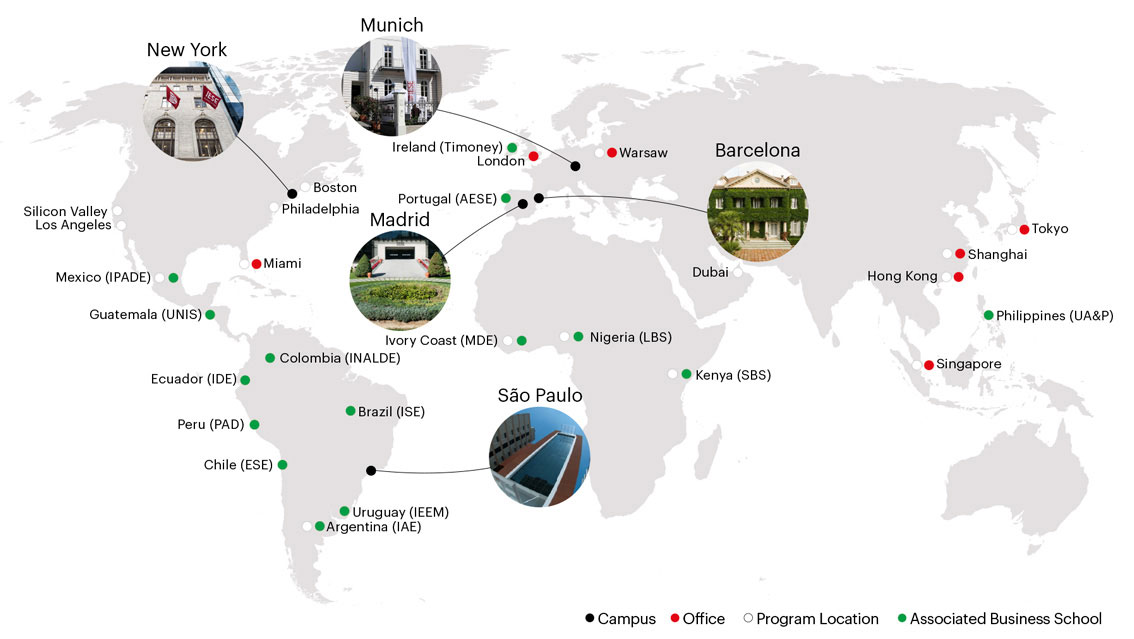IESE offers an unparalleled choice of executive education programs. From modular learning experiences for senior executives and functional directors to programs focused on specific competencies/sectors or custom-designed for companies, our programs have a common aim – to empower leaders to deliver positive, immediate and lasting impact.

An integrative understanding of Business
1
From concept to action to impact.
2
Take a generalist approach to navigate uncertainty.
3
Choose your network and language.
4
Broaden perspectives, build a global network.
5
Ranked 1st in the world for executive education (2015-2020)
A Truly Global Business School

Haven’t found what you’re looking for?
We have programs for every professional level — from recent university graduates to the most senior executives, and for a wide range of business skills and knowledge. Why don’t you try browsing through our programs again?
Search ProgramsExecutive Education Rankings.





